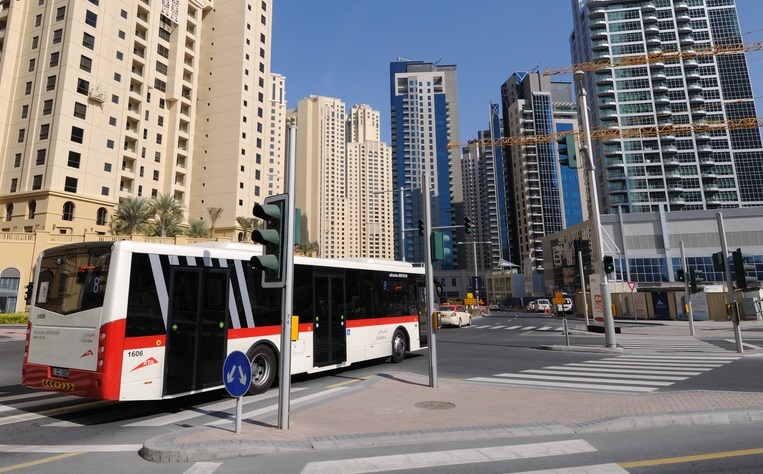According to sources in the UAE Roads and Transport Authority
(RTA), bus riders in cities around the Emirates will now have access to free Wi-Fi
on intercity buses in the area.
For the project, 106 buses to Sharjah and Abu Dhabi will be equipped with Wi-Fi
functionality through Etisalat, a regional provider.
“We are excited to support the efforts of RTA’s Public
Transport Agency towards improving the services offered to clients, fulfilling
the ambitions of the Smart Government, and living up to the high profile of the
UAE in the telecommunication and IT industries,” Salvador Anjlada, business sector CEO at Etisalat, said in a press statement. “This constructive
cooperation will offer inter-city bus riders a free high-speed internet service
via their portable devices and smartphones. The experience will enable them to
use their time spent on board our buses.”
In the same statement, RTA CEO Abdullah Yousuf Al Ali
said bus riders will be able to surf the internet and use their devices for
what he called “a time-saving exercise.”
“The RTA always seeks to introduce the latest
telecommunication technologies in coordination with Etisalat, a key provider of
the smart services bundle offered by the RTA to public transport commuters and
other beneficiaries comprising citizens, residents, visitors and tourists,” Al
Ali said.
Although many travelers may be delighted with the new
functionality, others worry about some of the drawbacks with free access to
Wi-Fi services.
Steven Rutter is director of network systems at
Elizabethtown College, in Pennsylvania.
“I think it's a good idea,” Rutter said of providing Wi-Fi
access to citizens.
However, he stressed, it should be reasonably secure from
unauthorized access, whether it’s a Wi-Fi signal on public transit, or one
offered city-wide.
“As a system administrator, I'm not a fan of open Wi-Fi,”
Rutter said. “Somebody can capture the traffic.”
He said that, without a secure HTTPS connection and SSL-level
security, data can be vulnerable. Also, Rutter said, it's hard for users to tell who's offering
free Wi-Fi when they look up network access on their devices.
Network IDs can
offer little information, for example, on whether the public Wi-Fi is
legitimately offered by a government agency in partnership with private-sector
firms, or whether someone just opened up an illicit network to steal data through
an unsecured line.
“It's not having a trust relationship,” Rutter said,
describing how so many unwitting users will sit in a public space, checking
mail or surfing the Internet through an unsecured channel.
With SSL, he said, at least there is a reasonable level of
security.
“It's not 100 percent secure, but it's much more secure than open Wi-Fi,”
Rutter said.
Though it might take a while to optimize the process of
providing public Wi-Fi, some Dubai and UAE officials are confident that the
initial offering of on-bus Wi-Fi is part of a greater initiative to transform a
national economy that used to rely on oil and gas.
In some ways, the provision
of such services puts the UAE ahead of many other nations around the
world that have not yet been able to implement these kinds of public services.
Dubai area bus riders receive public Wi-Fi access




 Alerts Sign-up
Alerts Sign-up